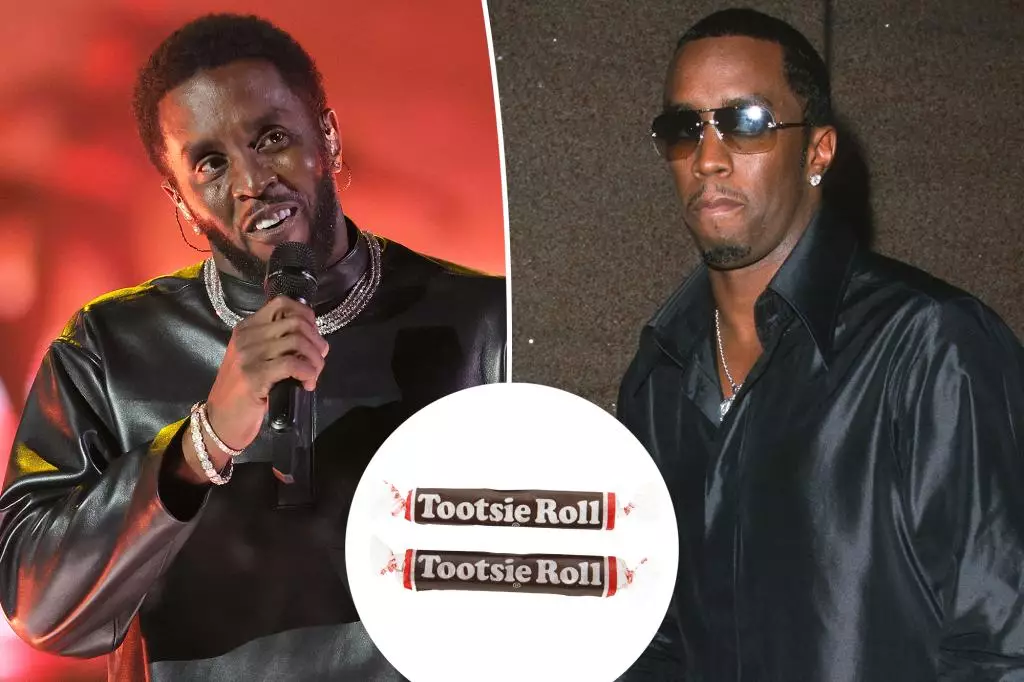In what can only be described as a startling turn of events in the realm of celebrity culture, music mogul Sean “Diddy” Combs finds himself embroiled in a serious legal battle. An unnamed woman, referred to as Jane Doe in a recent lawsuit, has come forward with shocking claims of sexual assault that she says took place in July 2001. The incident, which allegedly occurred after a series of social encounters with the Bad Boys Records founder, raises pressing questions about consent, power dynamics, and the responsibility that comes with fame.
The lawsuit presents a chilling narrative: after spending time together at various venues, the alleged victim claims that Diddy took her back to his apartment following a night out. Herein lies the crux of her accusations—immediately upon entering his personal space, she alleges that he used physical force and intimidation to overpower her will. As one reads through the details laid out in the legal documents, a disturbing picture emerges of coercion masked as a romantic encounter.
Power Dynamics and Fame
The allegations expose broader issues surrounding how power operates within the entertainment industry. Diddy, a celebrated figure with immense influence and wealth, represents the quintessential embodiment of celebrity privilege. The dynamics between a powerful music mogul and a young woman in a vulnerable position illuminate troubling societal patterns where individuals may feel compelled to placate or submit to the whims of those in power. Herein lies the ethical dilemma: when does admiration morph into an expectation of compliance?
Moreover, the description of the circumstances leading to the alleged assault—where the plaintiff claims to have been locked in a bedroom—highlights the frightening power imbalance that often exists between high-profile men and their victims. This incident is not merely an isolated case but part of a broader cultural issue that needs addressing. Women, and indeed many marginalized groups, have long grappled with the implications of consent, often finding their voices stifled by those who wield power like a weapon.
The Legal Landscape and the Public Eye
Importantly, the lawsuit has emerged amid Diddy’s ongoing legal issues concerning allegations of sex trafficking, raising questions about the climate in which such accusations are made and received. It begs inquiry into how society perceives and responds to allegations of sexual misconduct, particularly within the public sphere. It is noteworthy that the legal system permits individuals to file lawsuits anonymously, a provision that, while offering some safety to accusers, also draws skepticism, particularly from the accused.
Diddy’s representatives have responded vigorously, stating that the musician has never engaged in any form of sexual misconduct. Such denials can, to a degree, reflect a common reaction from public figures facing serious allegations—a defense mechanism that seeks to protect their reputation. Yet, this denial doesn’t negate the lived experiences of individuals who come forward, and conjecturing the truth must remain the domain of impartial investigation and due legal process.
Emotional Trauma and Mental Heath Impact
The plaintiff cites significant emotional and psychological damage as a result of the purported assault, evidencing the often unseen but deep scars that sexual violence leaves on victims. The road to healing is fraught with challenges, and many survivors report that the trauma extends far beyond the immediate aftermath. This fact illuminates the need for society to cultivate safe spaces for open discussion regarding the psychological ramifications of such incidents.
Furthermore, claims of undergoing psychotherapy underscore the reality that sexual assault is not merely a physical violation but a catastrophic assault on one’s mental well-being. Survivors require not just legal recourse but broader societal support systems that address their psychological needs, calling for increased awareness, advocacy, and resources for those grappling with the aftermath of trauma.
A Call for Accountability
At its core, this case serves as a glaring reminder of the imperative for accountability within the entertainment industry and society at large. Celebrities, like all individuals, must be held to the highest standards of conduct. The voices of the oppressed must not be silenced, and the legal framework should operate as a vehicle for justice rather than a shield for the powerful. What is at stake is not just an individual’s reputation but the very culture of how we as a society confront issues of consent and abuse.
Certainly, all allegations should be met with due diligence, but the persistent cycle of victim-blaming and skepticism surrounding claims of sexual assault remains a barrier to justice. It is time to acknowledge these narratives and ensure that those who experience sexual violence receive the recognition, support, and accountability they so rightfully deserve.

